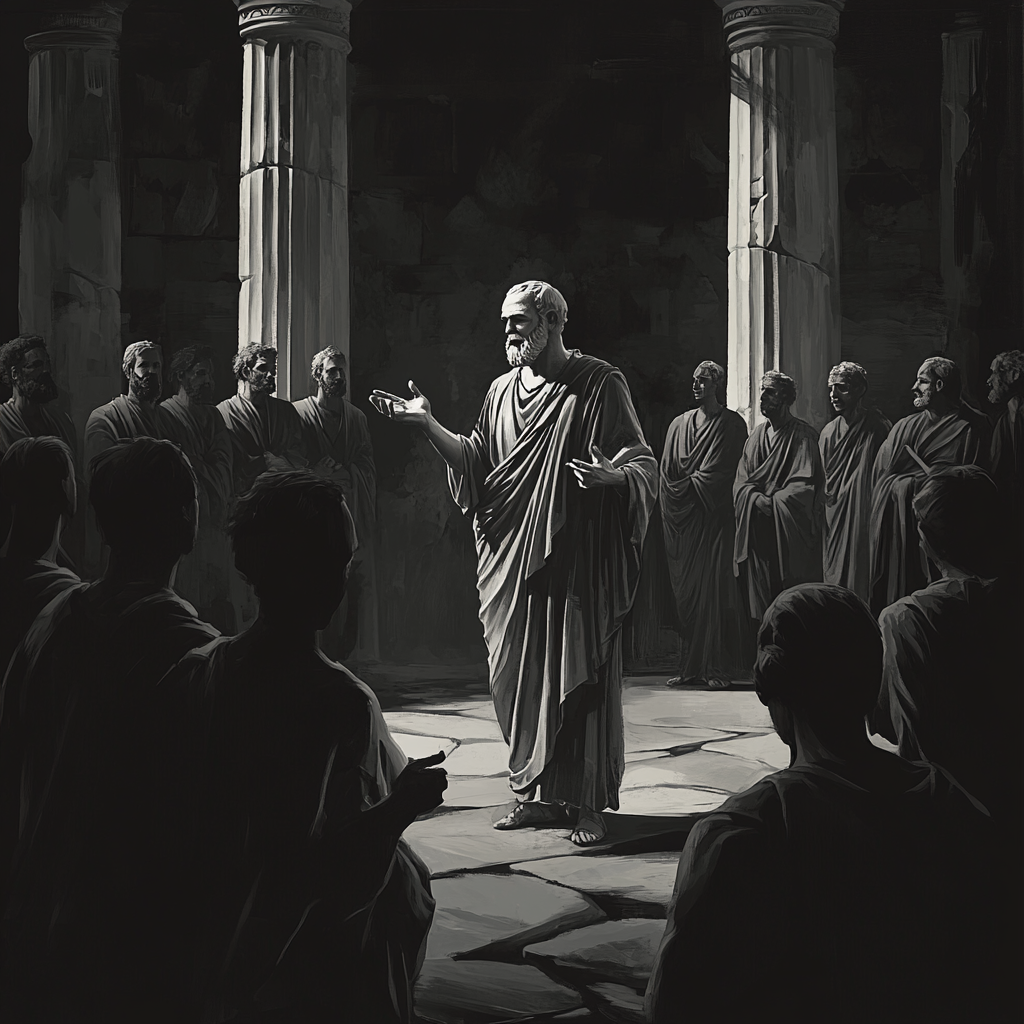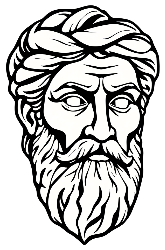Socrates: The Unexamined Life
Socrates, one of the most iconic figures in Western philosophy, left a lasting legacy through his commitment to ethical living and his relentless pursuit of wisdom. Although Socrates never wrote down his own teachings, his life and ideas were immortalized by his student Plato. One of his most famous sayings, “The unexamined life is not worth living,” provides a powerful insight into his approach to philosophy and ethics. This statement, made during his trial in Athens, is a central theme in understanding Socratic thought and its relevance to the way we live today.
The Meaning of the Unexamined Life
The phrase “the unexamined life is not worth living” captures Socrates’ belief that self-reflection and critical questioning are essential to living a meaningful and virtuous life. For Socrates, life is not just about survival or success; it is about pursuing wisdom and moral excellence. To him, living without self-examination is to live blindly, without understanding the true nature of one’s actions, desires, or purpose.
According to Socrates, many people go through life accepting societal norms, traditions, or their own assumptions without questioning them. They seek wealth, power, or pleasure but rarely stop to reflect on whether these pursuits lead to true happiness or virtue. Socrates believed that without self-awareness, we cannot truly understand what makes life valuable or what makes actions just.
The Socratic Method
One of the ways Socrates pursued the examined life was through his unique approach to dialogue, known as the Socratic Method. In his conversations, Socrates would question people about their beliefs, guiding them to examine their assumptions and uncover contradictions in their thinking. His goal was not to humiliate but to help others realize their ignorance and inspire them to seek true knowledge.
The Socratic Method is grounded in the belief that true wisdom comes from acknowledging one’s ignorance. Socrates famously declared that he was wise only in the sense that he knew that he knew nothing. This acknowledgment of ignorance, rather than being a defeat, was for Socrates the beginning of wisdom. It is only by admitting what we do not know that we can begin the journey toward deeper understanding.
The Role of Virtue
For Socrates, virtue (or “areté” in Greek) was the highest goal of life. He believed that virtue is closely tied to knowledge and that the key to moral action is understanding what is good. He argued that people do wrong only out of ignorance, not because they deliberately choose evil. If someone truly understands what is good, they will act accordingly.
In this sense, Socrates connected the examined life with the pursuit of virtue. To live well, one must constantly reflect on whether their actions and desires align with the good. This process of examination is essential to developing a moral character and achieving happiness, or eudaimonia, the flourishing life.
Socrates’ Legacy

Socrates’ insistence on the examined life was revolutionary in ancient Athens, where traditional beliefs and unquestioned authority often shaped society. His willingness to challenge these norms eventually led to his trial and execution. Accused of corrupting the youth and impiety, Socrates was given the choice to stop philosophizing or face death. He chose death, famously stating that he would rather die than live without philosophy.
Socrates’ death solidified his legacy as a martyr for the pursuit of truth and moral integrity. His life and teachings continue to inspire those who believe that philosophy and critical thought are essential to a meaningful existence.
Relevance Today
Socrates’ emphasis on self-examination is as relevant today as it was in ancient Greece. In a world filled with distractions, social expectations, and information overload, it’s easy to go through life without questioning the values that guide our decisions. Many people pursue wealth, success, or pleasure without asking whether these pursuits bring them true fulfillment or align with their deeper values.
The examined life, as Socrates envisioned it, requires us to pause, reflect, and question. What are our motivations? Are our beliefs and values truly our own, or are they inherited from society or family? Are we living in accordance with our principles, or are we simply going through the motions?
Incorporating Socratic reflection into modern life means embracing curiosity and skepticism, not as a way to be negative or disruptive, but as a way to discover the truth about ourselves and the world. It is through this ongoing process of self-examination that we can live more authentic, purposeful lives.
Roman Ethics and the Virtuous Life
Conclusion
Socrates’ declaration that “the unexamined life is not worth living” remains one of the most profound statements in the history of philosophy. It challenges us to reflect deeply on the nature of our existence, our choices, and our values. Through self-examination, we not only become more aware of our own limitations and ignorance, but we also open the door to greater wisdom and moral growth. In a world where it’s easy to live on autopilot, Socrates reminds us that true fulfillment and virtue come from a life of thoughtful reflection and questioning.

